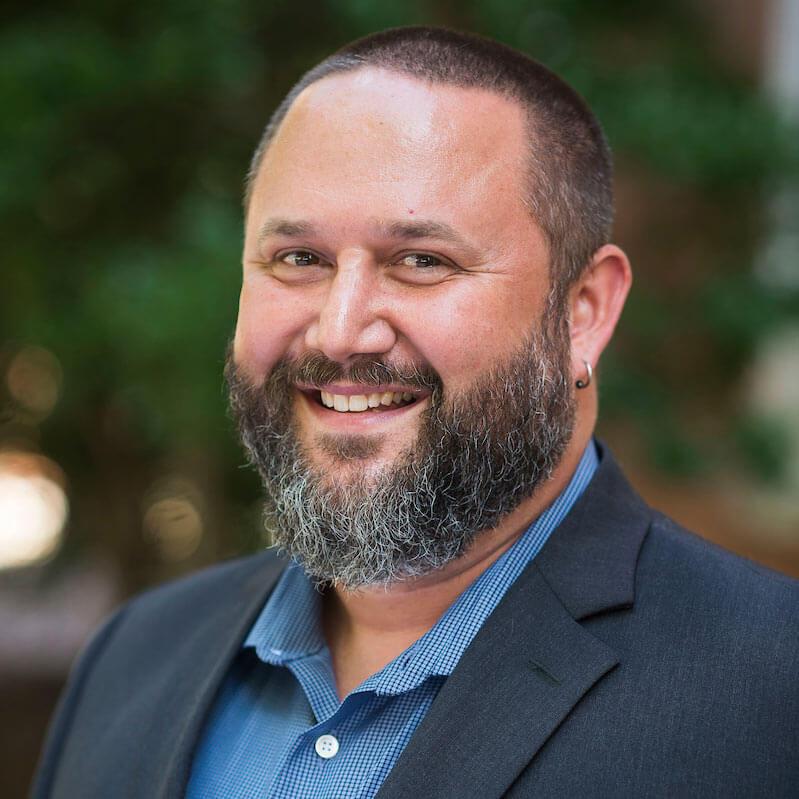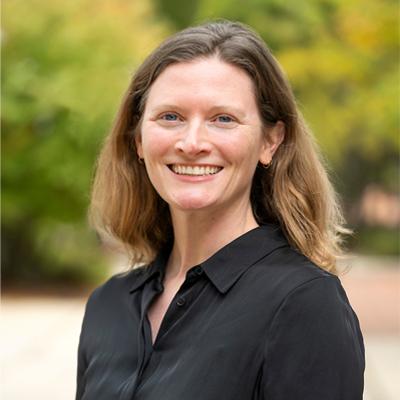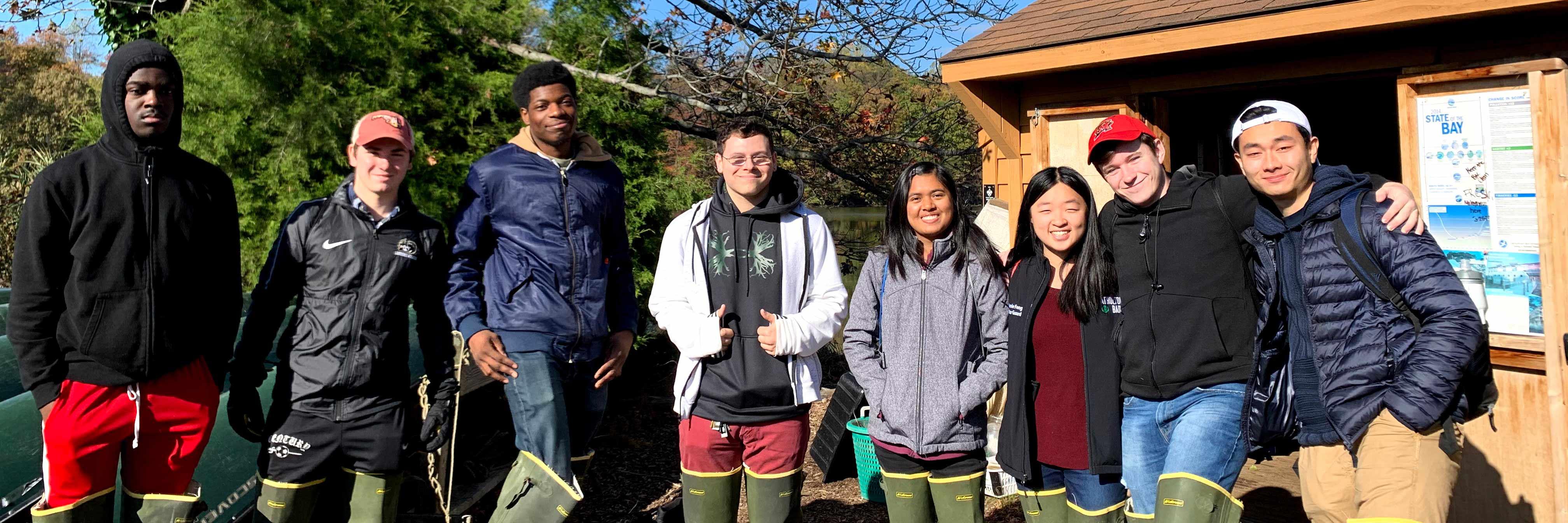Environment, Technology and Economy
Empowering students to build a just and sustainable world
Introduction
Human life and survival depend on the health and availability of the planet's natural resources, from water and air to fossil fuels and other energy sources. In this context, what does it mean to each of us to be a citizen of this community, this country, and this world?
The Environment, Technology and Economy (ETE) program takes on the complex and urgent issues of global sustainability from an environmental, social and economic perspective.
Students explore:
- Human impacts on ecosystems and the natural environment;
- The role of food systems in the just and sustainable production of food; and
- The impact of policy on society and the environment.
The program offers a holistic and intersectional view of sustainability, examining how institutional systems and traditional power structures create differential exposure to environmental hazards depending on race, gender, and national origin. Ultimately, students are encouraged to work towards a more just and sustainable future, both in their personal lives and as agents of systemic change.
ETE is ideal for students who are interested in engaging with the world and their communities. All majors are welcome and in fact, encouraged, to ensure a diversity of perspectives.
Colloquium and Lecture Topics
- The impacts of waste on people and the planet
- Global climate change and ecosystem services
- Guest lectures from experts on Climate Change, Indigenous foodways, insect pollinators, environmental policy and other topics
- Sustainable and regenerative approaches to food production and distribution, with an emphasis on the historical roots of these practices in Black and Indigenous cultures
- Corporate sustainability and ecological economics
- New and emerging trends in energy, transportation, biotechnology, and computer science
Learning about the interconnected relationship between environmental issues, economic security and social equity has helped me find connections between my ETE coursework and other classes.
Other Learning Opportunities
ETE offers a variety of opportunities to enhance students' classroom learning. UMD's location near Washington, DC, means students have access to world-class museums and to organizations with national influence.
Students also have the opportunity to:
- Work with a team to write a grant proposal to address an issue they care about, with the opportunity to implement the grant with faculty support;
- Learn about the history and ecology of the Anacostia River with the Anacostia Watershed Society while canoeing with friends;
- Hike in the region's many green spaces, including the Arboretum and Botanical Garden that is the UMCP campus, to experience firsthand the positive impact outdoor activity has on mental health;
- Tour Philip Merrill Environmental Center, the world’s first LEED-platinum building;
- Explore permaculture practices and native plant dining at Forested LLC, an experimental food forest.
ETE further works closely with UMD's Office of Sustainability, Resident Facilities, the UMD Arboretum and Botanical Garden, and other partners to facilitate sustainable initiatives on campus. Student projects have included revitalizing an interpretive trail on the Wooded Hillock, reducing student water use in showers, a tree-safe location for hammocks, and installing an algal turf scrubber to clean up campus waterways. Several projects have been awarded grant money so students can put their ideas into action.
Curriculum Overview
Over the two-year program experience (four semesters), students will complete two supporting courses that will count toward their ETE Scholars citation. In most cases, these will fulfill General Education requirements. Note that your Scholars courses—colloquium, practicum and supporting course—will generally be in addition to any courses you take to satisfy major requirements.
The following table represents a typical two-year curriculum, but individual schedules may vary. Details about courses and requirements can be found on the ETE Citation Checklist.
| SEMESTER | COURSE | CREDITS |
|---|---|---|
| Semester 1 | CPET 100: Colloquium I | 1 credit |
| Semester 2 | CPET 101: Colloquium II (DSSP, DVUP) | 3 credits |
| Semester 3 | CPET 200: Colloquium III | 1 credit |
| Semester 4 | CPET 230: Internship; or CPET 240: Service-Learning; or CPET 250: Research |
1-3 credits |
| Semester 1, 2, 3, or 4 | Supporting Course (var. Gen Ed) Supporting Course (var. Gen Ed) |
3 credits 3 credits |
Sponsoring College
Office Address
0129 Cumberland
Office Phone
Faculty


News and Notes, Etc.
The Diamondback: UMD’s first year book panel discusses how students can act on environmental issues, October 2022
Environment, Technology and Economy News
Practicum Offers Hands-On Ways to Learn About ‘Complicated Issues In and Out of the Classroom'
Incoming students often hear about the various experiences that Scholars take on in their practica–the capstone project or culminating hands-on learning all College Park Scholars are required to complete in their second year. Though specific practicum requirements vary by Scholars program, students are commonly able to meet program needs by engaging in an internship, doing service-learning or conducting research.
Scholars recognizes Citation Class of 2022, Founders Circle Award winners
Students in College Park Scholars’s Citation Class of 2022 began their University of Maryland (UMD) careers in the fall of 2020, under the shadow of the COVID-19 pandemic. They spent their first year almost entirely online: Some Zoomed into their program colloquium from their double-turned-single dorm rooms; others attended virtually from their families’ homes, away from campus.
2 Scholars alums named Merrill Presidential Scholars
Two Scholars alumni were among the 19 graduating seniors named this year’s Philip Merrill Presidential Scholars. The program recognizes the University of Maryland’s most successful seniors—as chosen by their academic colleges—and additionally honors the university faculty and K–12 teachers they cite for their mentorship. The two alums were: Alexia Ayuk, Business, Society and the Economy Katelyn Wang, Environment, Technology and Economy
UMD Grant Initiative Bolsters Scholars Curricula With Additional Experiential Learning
Hands-on, active learning has always been a hallmark of College Park Scholars. Thanks to new grants from the University of Maryland (UMD), some Scholars programs will expand upon those traditions with more resources and support. The grants come from UMD’s campuswide Teaching and Learning Innovation Grants initiative, which is providing significant funds—up to tens of thousands of dollars in some cases—for innovative educational projects that focus on active and experiential learning.
7 Ways You Can Make a Difference on Climate Change
The following article originally appeared in Maryland Today: Hundred-year floods occurring every few years. Record-breaking heatwaves buckling roads and withering harvests. Prolonged drought causing frequent wildfires. These days, it’s not hard to find dramatic examples of weather-driven disasters made worse by climate change. It’s also too easy to feel defeated by the magnitude of the problem.
Sounds of a New Start
The following article originally appeared in Maryland Today: The rumble of yellow move-in carts, the cheers from the stands at Maryland Stadium and the fanfare of the marching band rehearsing its pregame show supplied an upbeat soundtrack of Fall Welcome Weekend at the University of Maryland. In cars and SUVs stuffed with their still-in-the-wrapper gear, over 4,700 freshmen—and thousands of other students—and their families arrived on campus over the past few days to begin the academic year and get to know the campus, and each other.

